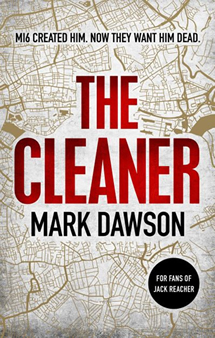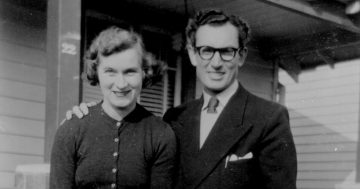Reviewed by Robert Goodman.
By Mark Dawson, Allen and Unwin.
 Bests selling thriller author Mark Dawson jumped into the former-killer-trying-to-make-amends-for-his-dark-past genre in 2013 with the his full length novel The Cleaner. Seven years later and the John Milton series has stretched to 18 entries and a bunch of adjacent novellas some of which are co-written with some other bestselling UK authors like Steve Cavanagh and Michael Ridpath.
Bests selling thriller author Mark Dawson jumped into the former-killer-trying-to-make-amends-for-his-dark-past genre in 2013 with the his full length novel The Cleaner. Seven years later and the John Milton series has stretched to 18 entries and a bunch of adjacent novellas some of which are co-written with some other bestselling UK authors like Steve Cavanagh and Michael Ridpath.
But The Cleaner is essentially John Milton’s origin story. It opens with Milton doing what he does best, carrying out a high profile assassination in France. On coming back from this mission Milton decides to pull the pin on his career. Surely he knows what the shadowy assassination organisation he works for does to assets who have outlived their usefulness? But rather than running as far and as fast as he possibly can, he stays in London, rescues a woman who is about to commit suicide and randomly decides to help her and her wayward teenage son as some sort of attempt at atonement for his many sins. This puts Milton in the middle of street gang wars on a crumbling London housing estate and later, riots spreading across the south of England.
The Cleaner shows Dawson still trying to find his feet. Everything the reader knows about Milton comes from an info dump as his disaffected boss “reviews his file” to learn things that he should already know. And despite his reputation as the “best of the best”, Milton does little planning and is constantly surprised when the people he enlists to help him end up wounded or dead. And by the end, the whole exercise feels like it has been a bit of a bust.
The enjoyment in these types of books is the sense of justice that is achieved when a deadly instrument of the state turns their attentions (successfully) to real evil-doers. While that does happen here to an extent it comes at way too high a cost and leaves Milton’s charges exposed and alone. If Dawson’s aim was to make readers aware of the hopeless cycle of drugs and poverty in the heart of London he succeeds. He is less successful at building this reality into an effective thriller. Given the resolution there is little here to invite the reader to care about Milton or what happens to him next.
This trope of the former assassin using their skills to help random people in order to somehow atone for their sins has been done better. Slightly more recent (the first book was released in 2016), and much more enjoyable, has been Gregg Hurwitz’s Orphan X series, which occasionally goes for this type of gritty realism but has some over-the-top elements that leaven the mood.
It is unclear why, after a prolific output that has included multiple titles per year (five entries of this series were released in 2014 and four in 2018) Dawson’s publishers have seen the need to rerelease this earliest title. And it may be that this series improved over time. But based on this first entry, it is hard to know why anyone stuck around to find out.
This and 500 more reviews can be found at www.pilebythebed.com.











